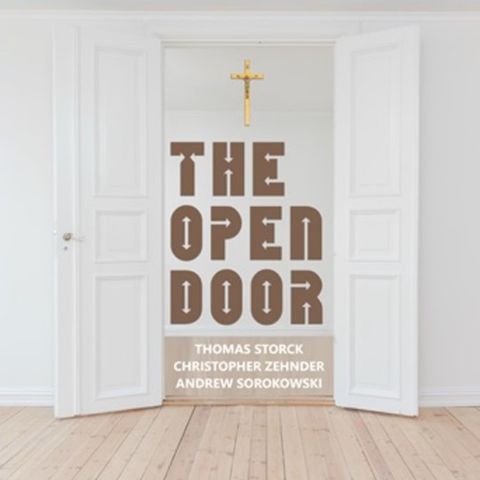Episode 260: Daniel Philpott on Racism and Reparations (May 31, 2023)

Descarga y escucha en cualquier lugar
Descarga tus episodios favoritos y disfrútalos, ¡dondequiera que estés! Regístrate o inicia sesión ahora para acceder a la escucha sin conexión.
Episode 260: Daniel Philpott on Racism and Reparations (May 31, 2023)
Esta transcripción es generada automáticamente. Ten en cuenta que no se garantiza una precisión absoluta.
Descripción
In this episode of The Open Door, panelists Jim Hanink and Mario Ramos-Reyes discuss racial reparations. Our special and returning guest is Daniel Philpott, Professor of Political Science at the...
mostra más1. Is racism in America both like and unlike original sin?
2. What does it mean for a nation, rather than a person, to apologize for a wrong
action? Might a refusal to apologize constitute a structure of sin?
3. What does it mean for one nation to forgive another nation?
4. Can you give us a working definition of “reparations”?
5. On your view, an historical injustice violates the natural law. What if a nation
does not recognize the natural law? Might it still have a basis for reparations?
6. What do you mean by the expression “a standing wound of injustice”? How can
we best respond to such a wound?
7. Can we say, without racial prejudice, that some cultures are in some respects
superior to others? Here one might think of the unique contribution of classical
Greek philosophy to Christian theology.
8. Should we believe that injustice’s greatest damage is to the wrongdoer? If this
view is true, what reason do we have to also punish the wrongdoer?
9. You write that “Justice in the Bible…is understood best through the words sedeq
(or its feminine equivalent, sedeqah) in Hebrew and dikaiosune in Greek, which
translate to comprehensive right relationship.” Is this important in discussing
reparations?
10. Can you spell out why you think that “It is entirely plausible to attribute vast
inequalities in wealth, position, and opportunity faced by African-Americans
today to historical injustices faced within the past two generations”?
11. Should the principle of subsidiarity play a role in making reparations?
12. What are some specific forms that reparations might take?
13. What might be some specific forms of forgiveness?
14. Can we appeal to the concept of covenant in a secularized society?
Abstract: National healing for the persistent wounds of racism, America’s original sin,
can be advanced through a national apology, reparations and forgiveness. The frequent
practice of apologies and reparations around the world in the past generation provide
precedent for such measures. Christianity’s teaching of reconciliation and accompanying
notions of sin, repentance, forgiveness, and atonement provide a strong moral basis for
these measures and resonate with the rationales through which the United States’s
greatest champions of civil rights and equality have fought against racism and slavery.
Because racism and slavery were supported with the sanction of the state, in the name
of the collective body, measures of repair may now be performed by the state, in the
name of the collective body. Questions of who pays, who receives, and what form
reparations take are important ones and can be answered adequately. Through
collective apology, reparations, and forgiveness, the United States would enact and
renew its national covenant, acting in the tradition of Abraham Lincoln, Frederick
Douglass, and Martin Luther King, Jr.
Información
| Autor | WCAT Radio |
| Organización | WCAT Radio |
| Página web | - |
| Etiquetas |
Copyright 2024 - Spreaker Inc. an iHeartMedia Company

Comentarios